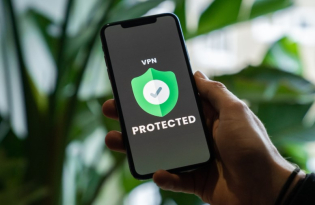A VPN stands for a Virtual Private Network, and these networks can act as an important way to keep you safe and secure online. A VPN is a way of connecting to the internet via secure servers that mask your device’s IP address - they are virtually impossible to hack and are fast becoming the standard way that both home and business users access the internet.
VPNs are useful in protecting you if you access public wifi when out and about, can help avoid data-throttling and bandwidth-throttling, and can even mean you’re able to bypass geo-blocks to access region-blocked platforms, such as Netflix.
If you are thinking that it’s time to get a VPN, you may feel a little overwhelmed by the choice available. Selecting the perfect package for your needs means you’ll save money and get access to all of the features and extra perks that you want. Below you’ll find our guide to choosing the best VPN so that you can start making the most of your new, ultra-secure connection.
Consider Your Use
To start with, think carefully about how you currently use your internet connection and the features you’d most like to be included with your VPN. As part of this, consider the devices that the VPN needs to be installed on: this could be your phone, laptop, and Smart tv, as well as your desktop PC. To this end, you may wish to look for services that can incorporate VPNs on multiple devices in a single plan.
As standard, you should look for a VPN provider that guarantees fast speeds, offers multi-level encryption, and can connect via servers in multiple locations. You may also wish to choose a provider that doesn’t log or collect your data in any form either.
Decide Upon Price
Next, decide on your budget. There are free VPNs available, but, in most cases, these companies recoup their operating costs by selling on user data, which you may feel uncomfortable with. Free VPNs are often not suitable for those who want to stream content from geo-blocked platforms as they usually have limited bandwidths of data allowance, which can result in slow speeds and lots of annoying buffering.
If you opt for a full coverage, pay-as-you-go plan, you can expect to pay in the region of £5 to £10 a month for your VPN. Signing up for a year will often net you a discount, although you may feel wary about committing to a package for a full twelve months before seeing how well it will suit you. Many VPN providers offer free trial periods, and this can be a great way to check out the service and its associated features.
Get Set to Stream
If one of the main reasons you’re considering installing a VPN is to allow you to access international catalogs of movies, shows, and live sports, then be sure to pick the one that’ll best support this use.
So - make sure that the VPN will work with your chosen streaming platform; Netflix, particularly, is now deploying many measures to prevent those using VPNs to stream content, and as a result, not all VPNs are able to connect to this service. Do some research to make sure that your chosen VPN will definitely give you access to the platforms that you want before signing up.
For streaming purposes, also pick a VPN provider that uses multiple servers in as many locations as possible: to give you an idea of what you should be looking for, most high-quality VPNs have over 2,000 servers spread across more than 50 countries.
Check Reviews
Finally, read as many reviews as you can from former and current customers of the VPN provider you’re considering to get an idea of the service you can expect. Consult comparison guides to find out how the various options stack up and to easily view the perks and prices of each package.
Pay attention, too, to how the customer service provision is rated: if your connection goes down, can agents be gotten hold of promptly and in a variety of different ways? Is support available 24/7?
What’s Next?
Once you’ve chosen your VPN provider and package, it’s time to get it installed - luckily, this is usually a super simple process.
If you’ll be using your VPN solely at home, then your connection can be set up through your wifi router, meaning it’ll cover all the devices on your home network at once. Alternatively, if you want a VPN connection on your mobile device(s), then you’ll need some VPN software.
To get and install this software, simply download an app of your choice - either through your internet browser or via your device’s app store. Most software will automatically configure the VPN onto your device after downloading, making setting up your new connection extremely quick and easy.
Using a VPN is cost-effective and can make a huge difference to your online experience. From protecting your privacy to allowing you to stream movies and tv shows from platforms around the world, they’re fast becoming the go-to option for home and work internet use.








